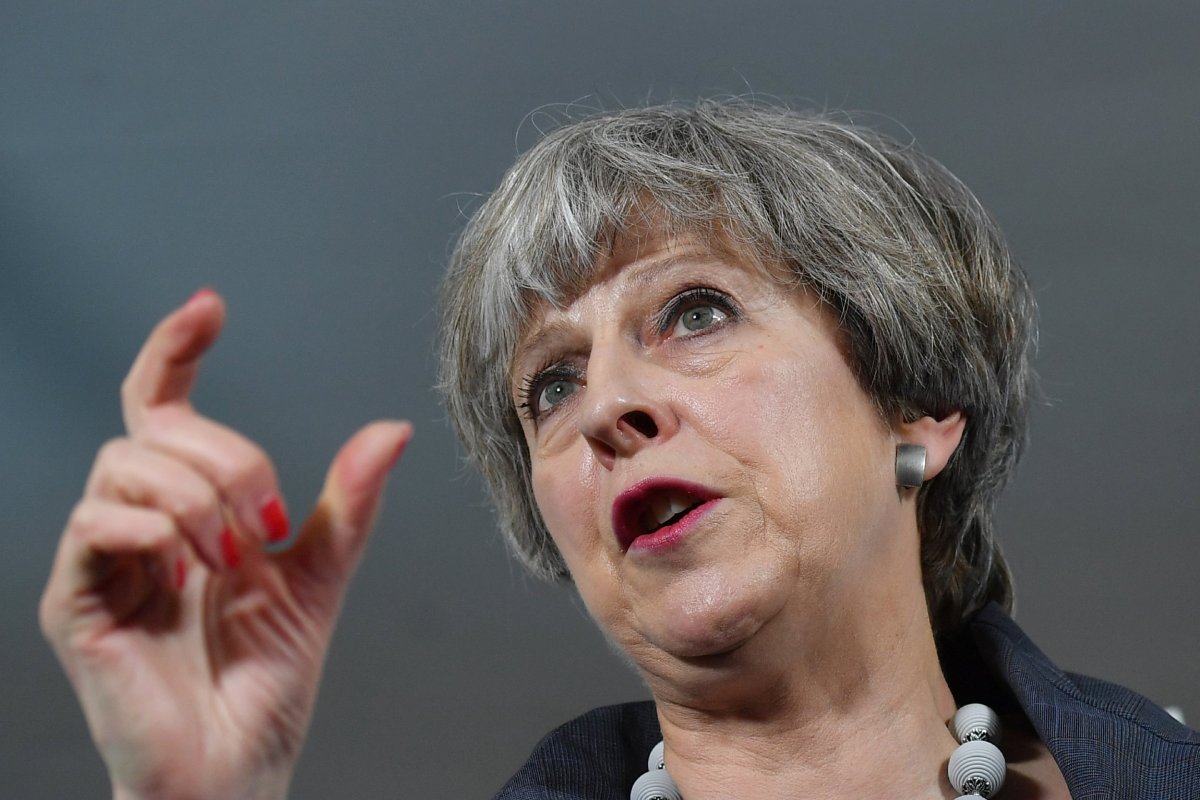This article first appeared on the American Enterprise Institute site.
On Thursday, British voters are voting in a snap election called by the UK's Prime Minister Theresa May.
When she called the election in April, the decision looked like a masterstroke. The Labour Party was hitting historic lows in the polls, losing in constituencies that it had dominated since the 1930s.
However, a month and a half is a very long time in politics and the picture days ahead of the election looks far less certain – and not just because of the two terror attacks that struck the country over the recent weeks.
Here are the key takeaways:
1. Conservatives are not what they used to be
The party of Margaret Thatcher? Not quite. Arguably, its relatively light-touch labor market regulation is one of the strongest selling points of the UK economy. The Tory manifesto does not quite promise to turn Britain into Greece or Italy but it includes commitments to crack down on the sharing economy and give workers a place on corporate boards.
Conservatives have committed to "identifying the industries that are of strategic value to [the UK's] economy" and supporting them through targeted advantages not available to others. At the same time, Ms. May has shown little zeal for reforming the real bottlenecks of the UK's economic growth – especially the extremely strict land use restrictions.
RELATED: UK Election Polls Latest: Did London Attack Hurt Theresa May?

2. Neither are Labour
Since Jeremy Corbyn's election as leader, the party has decided to bid farewell to any residue of the centrist heritage of Tony Blair's New Labour. Mr. Corbyn promises to return the UK deep into the 1970s, re-nationalizing the Royal Mail, railways, and energy companies.
Popular with the hardline party base, he's been ineffective in successfully challenging the government on substantive issues in Parliament, such as on Brexit.
When it comes to tackling terrorism, Mr. Corbyn has opposed the shoot-to-kill policy (which neutralized the attackers on Saturday within 8 minutes, preventing further injuries and loss of life) and was investigated by the UK's domestic counter-intelligence agency, the MI5, over his ties to the Irish Republican Army (IRA).
The election of Mr. Corbyn – who used every occasion to align himself with pro-Kremlin and pro-Iran voices, Islamists, anti-Semites, and Holocaust deniers – seems like a distant possibility but if it comes to pass, the consequences for the UK, NATO, and transatlantic relations would be dramatic.
RELATED: A Guide to Why the UK Election Is Exciting Even if You're Not British
3. The election was a dangerous gamble – and it has backfired already
If a landslide victory for Tories was a safe bet only a month ago, recent polls have been much tighter. Due to a campaign marked by embarrassing U-turns and a shambolic manifesto, even if Tories succeed in securing an absolute majority it is unlikely to be anywhere near as large as the one predicted when May called for the election. Whatever the exact outcome, the real winner of the election is Mr. Corbyn. Even if he does not become prime minister, he will strengthen his grip on Labour by claiming credit for successfully leading the party away from the brink of irrelevance only a few months ago – though the real reason has been Ms. May's mishandling of the campaign rather than his own political acumen.
4. What have British pollsters learned since 2015?
The pre-election polls were spectacularly different than the results of the last general election, largely by systematically underestimating the performance of Conservatives. While polling companies have surely attempted to correct their past mistakes, the underlying complexities mean it is possible that models such as the one created by YouGov, which predicts a hung parliament, will be wrong again.
5. Brexit remains a monumental challenge
The run-up to the election has seen a lot of speculation on whether a stronger mandate for Ms. May would strengthen or weaken the UK's position in the Brexit negotiations, which are scheduled to begin on June 19. If the divorce talks are derailed and the UK leaves without any agreement, as some Tories hinted, Brexit will have damaging consequences. The UK would risk the possibility of having to renegotiate a large number of international agreements with countries outside of the EU. And crashing out of some of the EU's common security arrangements, such as the European Arrest Warrant or Europol, would make fighting the jihadist threat far more difficult. Whether or not leaving the EU was a good idea, here's to hoping that the "strong and stable" leadership promised by Ms. May can be more than just an empty campaign slogan.
Dalibor Rohac is a research fellow at the American Enterprise Institute (AEI). He is a visiting junior fellow at the Max Beloff Centre for the Study of Liberty at the University of Buckingham and a fellow at the Institute of Economic Affairs in London.
Uncommon Knowledge
Newsweek is committed to challenging conventional wisdom and finding connections in the search for common ground.
Newsweek is committed to challenging conventional wisdom and finding connections in the search for common ground.
About the writer
To read how Newsweek uses AI as a newsroom tool, Click here.






